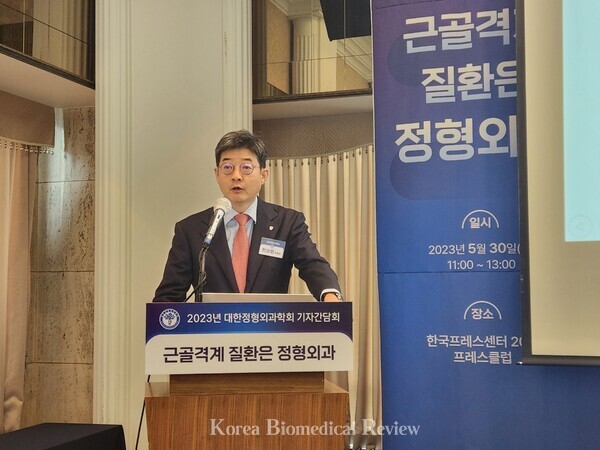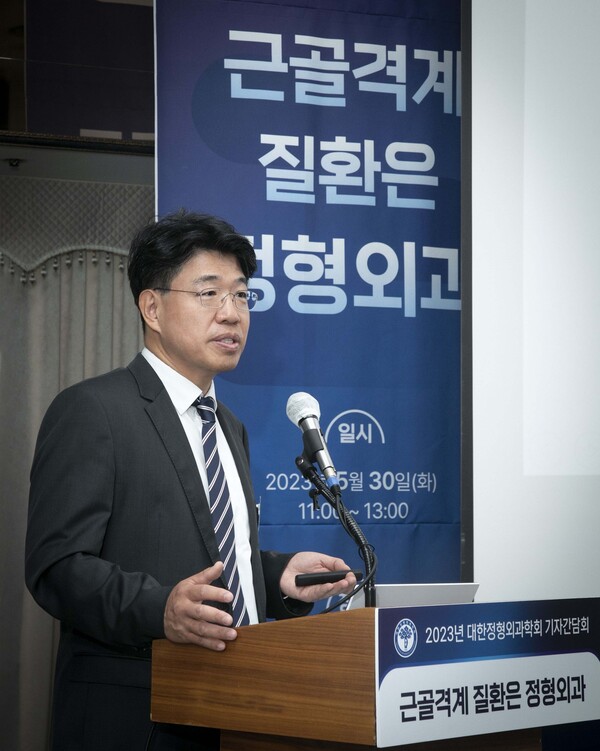“We usually seek non-surgical interventions first and then consider surgery if needed but you should not only receive injections and painkillers for pain as further rehabilitation might be necessary,” said an expert highlighting the need for consults with orthopedic surgeons to prevent serious musculoskeletal diseases.

The Korean Orthopedic Association (KOA) emphasized the importance of early accurate examination and differential diagnosis of knee joint pain as well as the need for improving reimbursement standards for orthopedic surgeries at a press conference in Seoul on Tuesday.
"As people's interest in sports increased again after Covid-19, the number of in-patients and outpatients presenting knee joint injuries has increased," said Soon Chun Hyang University Hospital Professor Lee Jae-cheol of Orthopedic Surgery and Chairman of KOA’s Public Relations. “It is important to accurately identify the cause of the injury from the beginning, as delayed treatment can lead to further ligament and joint damage or complications such as arthritis."
There were also more than 1 million patients treated every year for ankle sprains between 2016-2021 and the number of patients with lateral malleolus ankle fractures increased by 9.4 percent in 2022 compared to 2016.

"Patients with acute ankle pain can often recover sufficiently with non-surgical treatment if the cause is accurately diagnosed early and specialized treatment and rehabilitation are initiated accordingly," said Professor Lee. "However, functional exercise therapy or appropriate surgical treatment may be required depending on the judgment of the orthopedic specialist, such as immobilization with a cast or brace." If timely treatment is missed, it can lead to severe painful ankle conditions in the future.
Additionally, Professor Han Seung-beom, president of Korea University Anam Hospital and director of the insurance committee at KOA, pointed out that the more orthopedic surgeries are performed, the larger the deficits generated due to unrealistic insurance standards which are lower than in the U.S., and Japan, and currently fail to recognize actual surgical procedures and material costs.
“Not only are orthopedic surgeons abandoning surgery, hospitals are also finding it difficult to continue investing in new equipment and a recent survey conducted by the KOA also showed that the number of medical students pursuing a career in surgery was declining,” Professor Han noted.
In this regard, Han advocated for the establishment of orthopedic surgical fees, better insurance coverage for the actual cost of surgery and associated materials, and designating patients over the age of 80 with comorbidities to a group of specialized medical diseases for surgery.
Related articles
- SMA patients protest inconsistent reimbursement standards for Spinraza
- Shinpoong OKed for phase 3 study of osteoarthritis drug
- IL-23 inhibitors stage fierce competition in psoriasis, arthritis treatment market
- AbbVie’s Skyrizi expands insurance benefits for adult psoriatic arthritis
- Korean patient receives 1st customized shoulder joint implant from Corentec

